Thelma Shobe Endowed Lectureship - Advisory Panel
 Catherine (Kit) Chesla, RN, PhD, FAAN
Catherine (Kit) Chesla, RN, PhD, FAAN
Dr. Chesla is Professor and Interim Chair, Department of Family Health Care Nursing, UCSF School of Nursing. The goals of the Thelma Shobe Chair in Ethics and Spirituality are to identify the spiritual dimensions of nursing practice, and to provide leadership in addressing the ethical and spiritual challenges raised by technological advances in health care. Dr. Sulmasy, in the Second Annual Shobe Lecture defined spirituality broadly: "The primary spiritual questions are these: questions of meaning, questions of value and questions of relationships." Dr. Chesla's work aligns with the goals of the Shobe Chair through her enduring commitment to explore and illuminate how families, through their relationships and caring practices heal and hold the person who is ill. Her work is directed at articulating, and helping others articulate, the practical ethical comportment of patients and families in the face of chronic illness, and the ways in which health care services and structures support or impede their ways of coping with everyday challenges.
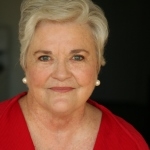 Patricia Benner, RN, PhD, FAAN
Patricia Benner, RN, PhD, FAAN
Dr. Patricia Benner, RN, PhD, FAAN, Professor Emeritus in the School of Nursing at the University of California was the first Thelma Shobe Chair and worked with Thelma Shobe to achieve her vision for the Chair and Lectureship in ethics, spirituality and health. Dr. Benner studies ethics situated in practice and education. She is the developer of the Faculty Development Website extending the work of the Carnegie Foundation National Research on Nursing education: Nursing Education: A Call for Radical Transformation: EducatingNurses.com. She is co-author with Dr. Judith Wrubel of The Primacy of Caring which focuses on everyday ethical comportment and the relational ethics of care. Her book From Novice to Expert: Excellence and Power in Clinical Nursing Practice, and subsequent books on knowledge embedded in skilled ethical and clinical practice, focus on exemplars of excellent practice as moral sources for practitioners. Exemplary narratives of practice inform character development and skillful ethical and clinical comportment. Dr. Benner’s current research: The Experience of Nurses and Wounded Warriors from Iraq and Afghanistan, focuses on injury, recovery, rehabilitation and re-entry into civilian life as described by nurses and warriors. This study explores ethical and clinical implications of three streams of war and care experience of the clinical-technological tradition of fixing mechanical bodies, the Greek Tradition of the Stoic Heroic Warrior, and the Judaea Christian ethic of Care and Responsibility. She continues to think about the links between ethics, spirituality, recovery and health.
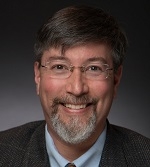 The Rev. Peter Yuichi Clark, MDiv, PhD, BCC
The Rev. Peter Yuichi Clark, MDiv, PhD, BCC
Peter Yuichi Clark is the Director of Spiritual Care Services at UCSF Health in San Francisco and Professor of Pastoral Care at the American Baptist Seminary of the West, a member school of the Graduate Theological Union (GTU) in Berkeley. He is an ordained minister in the American Baptist Churches USA, a board certified chaplain with the Association of Professional Chaplains, and a certified educator in ACPE (the Association for Clinical Pastoral Education). Peter teaches in the UCSF School of Medicine; he has authored or co-authored articles in the Journal of Pastoral Care, Christianity and Literature, the Journal of Supervision and Training in Ministry, Semeia, Chaplaincy Today, and Pastoral Psychology; and he has contributed chapters to seven books in the fields of nursing care, developmental psychology, biblical interpretation, Asian American religions, and American biographical history. Peter’s teaching and research interests include spiritual care in Asian American and Pacific Islander populations (with a focus on mixed-race persons); dynamics of aging and religious faith; implications of Buddhist-Christian inter-religious dialogue for spiritual care; spiritual assessment based on the capacity for hopefulness; cultural awareness and humility in health care; and Clinical Pastoral Education.
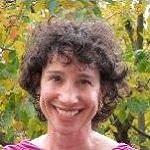 Jodi Halpern, MD, PhD
Jodi Halpern, MD, PhD
Jodi Halpern, MD, PhD is a Professor of Bioethics and Medical Humanities at the University of California, Berkeley. She is a psychiatrist with a doctorate in philosophy. Her work focuses on clinical empathy, health decisions, patient autonomy, social reconciliation and social justice. Dr. Halpern’s book From Detached Concern to Empathy: Humanizing Medical Practice, (Oxford University Press, New York, 2001/2011) was described by The Journal of the American Medical Association as “a seminal work in developing a scholarly understanding of the subject of empathy.” Her subsequent papers examine how emotional and social factors impede empathy and autonomy. She received a Greenwall Faculty Fellowship to study the emotional imagination and health decisions, and is writing a book about how people change in the wake of serious illness and new disabilities. She also works on social reconciliation in the aftermath of wars, and is currently examining the role of empathy in helping combat veterans and their families recover when they return home. Dr. Halpern’s teaching focuses on public health ethics, social justice and human rights.
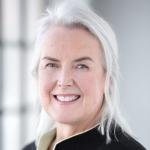 Ann Hughes, PhD, FNP-BC, ACHPN, FAAN
Ann Hughes, PhD, FNP-BC, ACHPN, FAAN
Anne Hughes, PhD, FNP-BC, ACHPN, FAAN, is an advanced practice nurse in palliative care, pain management and ethics at Laguna Honda Hospital and Rehabilitation Center, part of the San Francisco Department of Public Health. She also serves as volunteer Clinical Professor in Nursing in the School of Nursing UCSF. Dr. Hughes received her MN from the University of Washington in Seattle as family nurse practitioner and as nurse specialist caring for patients and their families living with a progressive illness. Dr Hughes' dissertation, completed at UCSF, explored the meaning and experience of dignity of the urban poor living with advanced cancer and advanced HIV/AIDS. In the course of understanding the everyday experiences of seriously ill persons living at the margins of society, many described the role of faith in coping and in connecting them to something greater than the struggle of living.
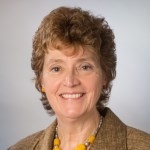 Barbara A. Koenig, RN, PhD
Barbara A. Koenig, RN, PhD
Headshot of Barbara KoenigBarbara A. Koenig, RN, PhD, is Professor of Bioethics and Medical Anthropology based at the Institute for Health & Aging, University of California, San Francisco. Currently, she co-directs an NHGRI “Center of Excellence in ELSI Research” that focuses on translational genomics, co-leads an NCI ROI on return of results in genomic biobanks, and directs the ELSI component of an NICHD award focused on newborn screening in an era of whole genome analysis. Prof. Koenig pioneered the use of empirical methods in the study of ethical questions in science, medicine, and health. Previously she was the founding executive director of the Center for Biomedical Ethics at Stanford University; she created and led the Biomedical Ethics Research Program at the Mayo Clinic in Rochester, Minn.
